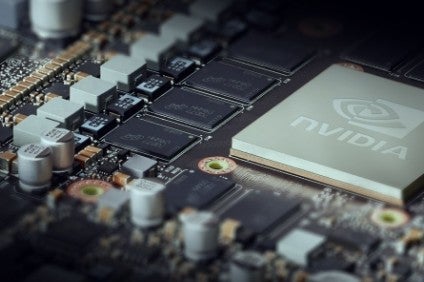
Bosch is to invest more than EUR400m (US$467m) expanding its wafer fabs in Dresden and Reutlingen in 2022, as well as its semiconductor operations in Penang, Malaysia.
“Demand for chips is continuing to grow at breakneck speed,” said Bosch chairman, Volkmar Denner. “In light of current developments, we are systematically expanding our semiconductor production so we can provide our customers with the best possible support.”

Discover B2B Marketing That Performs
Combine business intelligence and editorial excellence to reach engaged professionals across 36 leading media platforms.
Most of the capital expenditure is earmarked for Bosch’s new 300mm wafer fab in Dresden, where manufacturing capacity is to be expanded in 2022.
Around EUR50m of the planned sum will be spent on the wafer fab in Reutlingen near Stuttgart in the coming year. Bosch will invest a total of EUR150m in additional clean-room space in the plant from 2021 to 2023.
In Penang, Bosch is also building a test centre for semiconductors from scratch. Starting in 2023, the centre will test finished semiconductor chips and sensors. “These planned investments demonstrate once again the importance of having our own manufacturing capacity for the core technology of semiconductors,” added Denner.
For his part, Bosch board member, Harald Kroeger, added: “Our aim is to ramp up production of chips in Dresden earlier than planned and at the same time expand clean-room capacity in Reutlingen.
“Every additional chip we produce will help in the current situation.”
In two stages, a total of more than 4,000 square metres will be added to the current 35,000 square metres of clean-room space in Reutlingen. The first stage, adding 1,000 square metres of production area for 200mm wafers to bring the total to 11,500 square metres, has already been completed.
This involved converting office space into a clean room during recent months and connecting it to the existing wafer fab via a bridge. The new facility has been producing wafers since September.
“We’ve already expanded our manufacturing capacity for 200mm wafers by some 10%,” noted Kroeger.
Capital outlay for this came to EUR50m in 2021. In making the move, the company is responding in particular to increased demand for MEMS sensors and silicon carbide power semiconductors. The second stage of the expansion will create a further 3,000 square metres of clean-room space by the end of 2023. To this end, the German supplier will invest some EUR50m in both 2022 and 2023.
Bosch is also creating 150 new jobs in semiconductor development at its Reutlingen location.
Another portion of the capital expenditure planned for 2022 will go into a new semiconductor test centre in Penang. The factory is due to perform testing of semiconductor chips and sensors starting in 2023. In total, Bosch has more than 100,000 square metres of land available on Penang’s mainland strip, which will be developed in stages.
Initially, the test centre will cover an area of around 14,000 square metres; including clean rooms, office space, research and development, as well as training facilities for up to 400 staff. Earthworks for the new location started at the end of 2020 and work on the buildings began in May 2021. The test centre is scheduled to commence operations in 2023.
Additional testing capacity in Penang is intended to open up the possibility of locating new technologies in Bosch’s wafer fabs in the future, such as silicon carbide semiconductors in Reutlingen. In addition, the new location in Asia will shorten delivery times and distances for the chips.
Production in the 300mm wafer fab in Dresden started in July this year – six months earlier than planned. The chips made in the new plant are initially being installed in Bosch power tools. For automotive customers, chip production started in September, three months earlier than planned.
Bosch has been producing semiconductor components for more than 60 years.
Since 200mm technology was introduced in 2010, Bosch has invested more than EUR2.5bn in its wafer fabs in Reutlingen and Dresden.
https://www.bosch-presse.de/pressportal/de/en/bosch-to-invest-more-than-400-million-euros-in-its-semiconductor-fabs-in-2022-234432.html






